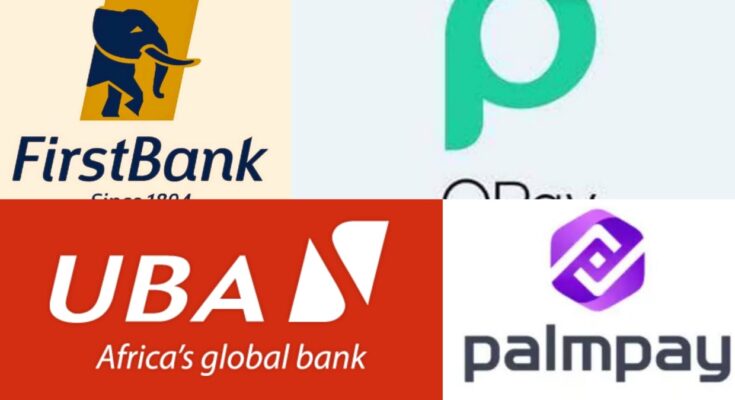Oluwagbeminiyi Abiola
In today’s world, the financial sector in Nigeria is experiencing a shift, with fintech companies emerging as disruptors challenging the long-standing dominance of traditional commercial banks.
This clash between innovation and tradition has sparked a heated debate about the future of banking in Africa’s largest economy.
At the heart of this transformation lies the advent of fintech, which refers to companies leveraging cutting-edge digital solutions to optimize financial services.
These companies, often startups fueled by a spirit of innovation, aim to provide more efficient, cost-effective, and user-friendly alternatives to the products and services offered by conventional banks.
The Rise of Fintechs in Nigeria
As consumer habits and expectations evolve, fintechs have capitalized on the demand for seamless, technology-driven financial solutions. Companies like OPay, Palmpay, Kuda Bank, and Moniepoint have gained significant traction, offering a range of services from mobile payments and digital banking to lending and investment platforms.
One of the key factors driving the popularity of fintechs is their ability to cater to the needs of Nigeria’s rapidly growing youth population, which is increasingly favoring digital channels over traditional banking methods. Fintechs have leveraged user-friendly mobile applications and intuitive interfaces to attract a customer base that values convenience and accessibility.
“I used to dread going to the bank and waiting in those long queues,” says Adebayo, a 28-year-old Lagos resident. “With fintechs like opay, I can manage my finances, transfer money, and even invest directly from my phone. It’s a game-changer for someone like me who values their time.”
Fintech vs commercial banks
The best part about fintechs is that they make banking super simple and totally digital. With just your phone, you can send money, pay bills, save, and even borrow money without having to go to a physical bank building. This is a game-changer, especially for young people who are always on their phones.
Customer Needs
Fintechs are really good at understanding what customers want, which is why so many people, especially youths, are switching to them. They make everything easy and user-friendly, unlike the big banks which can be pretty old-fashioned and complicated.
A 28-year-old guy from Lagos, says, “I used to hate going to the bank and waiting in those long queues. With fintechs like Kuda, I can do everything from my phone. It saves me so much time and stress.”
On the other hand, we have the traditional big banks like Guaranty Trust Bank, Access Bank, Zenith Bank, and others. These are the banks that have been around for a long time and have physical branches all over Nigeria.
Trust
Another advantage big banks have is trust. Even though some people complain about them, most Nigerians still trust that their money is safe with these big, established banks. This trust has been built over many years, and it’s not easy for new fintechs to gain that level of trust overnight.
The big banks are worried that these new, tech-savvy fintechs will steal their customers, especially the younger ones. That’s why they are trying hard to catch up and improve their own apps and digital services.
The fintechs, on the other hand, want to prove that they are better and can provide a more modern, convenient banking experience than the big banks.
Is CBN defending commercial banks?
However, the rise of fintechs has not gone unnoticed by regulatory authorities. Recently, the Central Bank of Nigeria (CBN) issued a directive to four prominent fintech companies—OPay, Palmpay, Kuda Bank, and Moniepoint—instructing them to stop the onboarding of new customers pending further investigation.
These companies have been linked to allegations of accounts being used for illicit foreign exchange transactions, raising concerns about potential financial fraud. Representatives from two of the affected companies confirmed that the CBN’s order is related to these allegations, signaling a tightening of regulatory scrutiny on the fintech sector.
The CBN’s actions have sparked a heated debate among industry stakeholders and consumers alike. While some applaud the central bank’s efforts to maintain financial integrity, others argue that excessive regulation could affect innovation and deprive Nigerians of accessible financial solutions.
“I understand the need for regulation, but the CBN should be careful not to throw the baby out with the bathwater,” says Omotola, a fintech enthusiast from Abuja. “Fintechs have brought much-needed competition and disruption to a sector that was stagnant for far too long.”
The Future
So, what’s going to happen in this big fight? Well, many experts think that the best way forward is for fintechs and big banks to work together instead of fighting each other. Fintechs can bring their cool technology and fresh ideas, while big banks can provide their experience, money, and the trust they’ve already built with customers.
Collaboration is the way forward. Fintechs and banks should work together to create solutions that give customers the best of both worlds.
In the end, the real winners in this fight should be the Nigerian people. With fintechs and banks working together or competing to be better, we’ll hopefully get more choices, better services, and easier ways to manage our money. It’s an exciting time in the banking world, and it will be interesting to see how this battle between fintechs and big banks plays out in the coming years.








